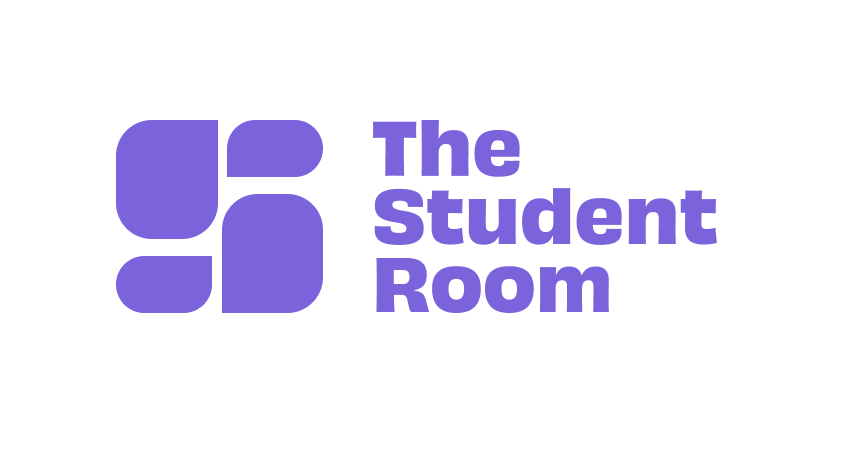A project to support student decision-making
The aim was to equip students with a decision-making mindset which would empower them to achieve their full potential and live lives they love. You can find out more about student decision-making in our regular sentiment decks:

by Mhairi Underwood
Head of Student Voice at The Student Room

in collaboration with Dave Cordle
Career Development Professional
Aim of the project
To support young people to live lives they love. The project explored values-based career decision-making and peer coaching to empower student decision-making.
Background
Students regularly ask for help with making decisions about their futures on The Student Room forums.
While educators often care deeply about this issue, resources to deliver bespoke programmes around future pathways can be limited. The government’s Lifelong Loan Entitlement consultation suggests there’s a desire to improve opportunities for students and help them find pathways that really work for them, but this presumes learners are confident decision-makers.
In March 2022, we asked our Student Advisory Board what support students need most when planning for their future pathways. This was one Year 12's response:
‘For me I don’t think it’s about choosing an option in a literal sense. It’s about developing the mental skills to be able to analyse different options, find resources, and to have the self confidence to know what you want, and even to go against what people say you should want.’
In short, students feel pressure to make the best decision, but don’t always know how to make choices that empower them as individuals.
We thought about this need, we considered the power of our peer-to-peer online community, and we wondered… ‘how can we help?’
Jump to section
Build
Design
Findings
Student feedback
Building the student decision-making course
In reviewing our project, Dr Ange Fitzgerald, Associate Professor in Teacher Education, spoke about the opportunity peer-led programmes can provide in student support:
‘Research in a wide range of contexts consistently identifies that young people are most likely to turn to their friends when they need help. And while friends form a particularly valuable support mechanism, the young people who find themselves as a ‘support person’ are often under-resourced to perform this role effectively.’
Joining us on this project was Dave Cordle, an expert careers coach and fellow of UK and international careers development organisations. Dave’s aim is to make sure that young people leave education with the skills to navigate and ever-changing career landscape, finding fulfilment and joy in their work. We teamed up with Dave to devise and test the following theory:

THEORY:
By equipping young people with a decision-making mindset and an understanding of peer coaching, we can change the culture of pathway decision-making in the UK so more young people are empowered to reach their full potential.
Project design
We invited our Student Advisory Board (students from Year 10 - Year 13) and a senior leader in our TSR community volunteer team to take part in a bespoke course.
The course was designed to equip them with a mindset for making empowered values-based decisions and supporting peers to do the same.
With feedback from the students, we offered three sessions conducted virtually during the Summer 2022 holiday. These focused on values, vision and goals, and peer coaching.
Evaluating project success
To assess the effectiveness of Phase One of the project, we utilised a survey prior to the commencement of the course, and again at the conclusion of the course, alongside students’ commentary during sessions.
‘If young people develop skills and strategies to make good decisions that align with their current vision for their life, they will be equipped to create work they love that supports the lifestyle they want throughout their adult life. I work with so many adults who say ‘I wish I’d known this when I was younger.’ It’s great to see an appetite in these young people to learn good future-focused decision making strategies. These are the skills that will help young people thrive throughout their life.’ - Dave Cordle
Project findings
The decision-making mindset and peer coaching course has been successful, with students showing improvement across 80% of key skills measures (values, adaptability, future planning and peer support). Participants were asked to rate themselves on a five-point scale (5 being the highest).
Knowing my values
Based on student feedback, this course helped them to identify the values that are important to them, so they’re more able to develop a mindset and skills for making decisions about their futures.
Rating
Before the course: majority 3 star
After the course: 100% of students 4 or 5 star
Defining my vision for the future
We saw a smaller shift in this metric. This is interesting, but neither positive or negative - committing to a firm vision was not the goal of this workshop; the goal was to equip young people with skills to consider it.
Rating
Before the course: a dispersion across ratings 2 to 5
After the course: all students 3 (neutral) or 4 (somewhat)
Adaptability to change
Overall, we saw students feeling more confident in adapting when their plans take an unexpected turn after completing the course, with one student saying they felt very confident (rating five), and the majority (67%) saying they felt confident in adapting to change (rating four).
Rating
Before the course: 88% 3 and 4 star After the course: 67% 4 star
Planning a future that excites me
We saw a drastic change in how students felt about their preparedness to plan a future for themselves which really excites them after completing the course.
Rating
Before the course: 55% rated themselves 1 or 2
After the course: 66% rated themselves 4 (well-prepared)
Supporting peers in planning their futures
Creating a culture of peer support around a decision-making mindset was a key focus of this project, and the feedback from students after the course shows a definitive increase in their preparedness to support their peers in planning their futures.
Rating
Before the course: 33% rated 1 or 2 - mixed feelings about supporting peers
After the course: 67% rated 5 (very well-prepared), 33% rated 4 (well prepared)
Course facilitation
100% of respondents to the post-course survey agreed or strongly agreed that the course was time well-spent, that the skills will help them in their future, and that they would like to help others adopt this mindset. Broadly, they felt the course was well-organised and the takeaway resources were helpful; they also provided constructive feedback - that more thought should be given to the duration of sessions if we were to run similar courses again.
Summary
This project is a glimpse into the potential that exists for harnessing the power of peer-led activities to empower student decision-making.
The findings show that when students are equipped with this training and mindset, they are more in touch with their own personal core values, feel empowered to plan a future that really excites them, more able to adapt when things don’t go according to plan, and more motivated to support their peers with their own explorations of their future.
Helping young people to develop these skills as early as possible means they are able to start navigating big life decisions in an environment where they’re encouraged and enabled within a trusted and trained network of peers. We’re excited by the opportunity for a model like this to create a cultural shift in pathway planning for young people.
‘the development of a peer-coaching model designed to support young people to make future-focused decisions creates an important vehicle from which to ensure both the mentor and mentee are informed, encouraged and psychologically safe throughout the coaching process. A peer-coaching model is a valuable way to take what the evidence is telling us and enact a human-centred approach designed to achieve meaningful outcomes.’ - Dr Fitzgerald
Student feedback
"[I enjoyed] learning how to prioritise and view my goals as realistic achievable life prospects instead of daydreams."
"I enjoyed learning how to talk to other people about their own values and visions for the future. I will always remember to use this mindset/ skills set when socialising with others- whether we are talking about their plans for the future or not."
"I enjoyed learning about decision making in session 2 as it immediately improved issues I was having on motivation and procrastination."
"I enjoyed the decision-making process with your values from the first session and think it will be a very useful frame to make decisions in the future. I also, in a similar way, liked exploring goals in the second session, especially what that goal looks like in detail because I think that’s important to look at and often looked over. Finally, I enjoyed the kind of Q&A at the end of the last session. I found the discussion on motivation very helpful and also really enjoyed hearing the stories of Dave and Mhairi about their careers and I think it’s definitely important to remember that you don’t always need to have your career set from the start."
"The DMMPC course has proved absolutely invaluable to me; especially during A Level Results, where I was able to accurately make a crucial decision, regardless of what emotions I had felt that day (a rollercoaster to say the least!). I loved how Dave explained the elements of decision-making so well, helped me shape my values, and significantly increased my confidence. Additionally, the peer coaching was a bonus - I believe the skills involved across the course are key to success in all aspects of your life, and this was a great way of teaching something so indispensable to all of us." (Comment from Iqra)
